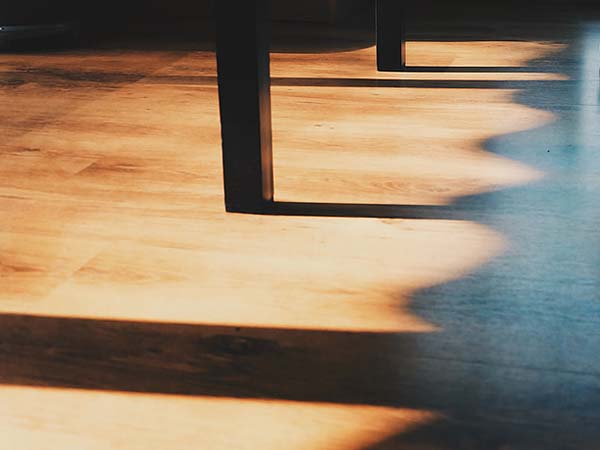Engineered Hardwood vs. Solid Hardwood: Making an Informed Flooring Choice
|
May 1, 2024 - By the dedicated team of editors and writers at Newsletter Station.

|
When choosing the perfect flooring for your home, deciding between engineered hardwood and solid hardwood can be challenging. Both options offer unique advantages and considerations, making understanding their characteristics, benefits, and drawbacks important.
In this blog, we'll explore the differences between engineered hardwood and solid hardwood to help you make an informed choice that aligns with your aesthetic preferences, lifestyle, and budget.
Understanding Engineered Hardwood
- Construction:
Engineered hardwood is constructed using multiple layers of wood, typically consisting of a top layer of real hardwood veneer bonded to layers of plywood or high-density fiberboard (HDF). This construction enhances stability and minimizes wood's natural expansion and contraction due to humidity and temperature changes.
- Durability:
Engineered hardwood is highly durable and more moisture-resistant than solid hardwood. The layered construction minimizes the risk of warping, cupping, or buckling, making it suitable for areas with fluctuating humidity, such as basements and bathrooms.
- Installation:
Engineered hardwood is often favored for its installation versatility. It can be glued, nailed, or floated over various subfloor types, including concrete. This makes it a popular choice for both above-grade and below-grade installations.
- Aesthetics:
Engineered hardwood offers many styles, species, and finishes like solid hardwood. The top layer of real hardwood provides an authentic appearance, and many people find it challenging to distinguish between engineered and solid hardwood once installed.
Exploring Solid Hardwood
- Construction:
Solid hardwood is made from a single piece of wood and is available in various thicknesses. It boasts a traditional and timeless appeal, adding warmth and elegance to any space.
- Durability:
Solid hardwood is exceptionally durable and can be refinished multiple times. However, it is more susceptible to changes in moisture and temperature, which can lead to expansion, contraction, and potentially warping if not properly acclimated and maintained.
- Installation:
Solid hardwood is typically nailed or stapled down, requiring a wooden subfloor. It is not recommended for areas with high humidity or below-grade installations due to its vulnerability to moisture-related issues.
- Aesthetics:
The authenticity and rich character of solid hardwood are unmatched. Its natural variations, knots, and grain patterns contribute to a luxurious appearance that can enhance the value of your home.
Choosing the Right Option for You
- Consider Your Lifestyle:
If you live in an area with high humidity levels or want flooring for a bathroom or basement, engineered hardwood might be the better choice due to its moisture resistance. However, if you're after the classic charm of solid wood and are willing to be diligent with maintenance, solid hardwood can be a rewarding choice.
- Installation Requirements:
Think about where you intend to install the flooring. Engineered hardwood's versatility suits many spaces, including those without wooden subfloors. Solid hardwood, on the other hand, requires more specific conditions for installation.
- Longevity and Refinishing:
If you foresee being in your home for a long time and appreciate the ability to refinish your flooring multiple times, solid hardwood might be the right investment. Engineered hardwood can also be refinished, but fewer times due to its thinner real wood veneer.
- Aesthetic Preferences:
Both options offer beautiful aesthetics, but solid hardwood delivers unparalleled elegance if you're seeking that traditional, authentic wood look.
Choosing between engineered hardwood and solid hardwood depends on various factors, including your lifestyle, installation requirements, and design preferences. Engineered hardwood's durability, moisture resistance, and installation versatility make it a practical choice for many homeowners.
On the other hand, solid hardwood provides a timeless appeal and the satisfaction of genuine wood character. Whichever option you choose, investing in quality flooring will undoubtedly elevate the beauty and value of your home for years to come.
Unlock the Power of Email Marketing
Harness the potential of email marketing with Newsletter Station. Reach your target audience, drive conversions, and achieve your business goals.
|
More Blogs
| May 15, 2024 |
The Best Way to Dry Carpet
|
| May 1, 2024 |
Engineered Hardwood vs. Solid Hardwood: Making an Informed Flooring Choice
|
| Apr 24, 2024 |
Signs that Your Carpet Needs to Be Replaced
|
| Apr 17, 2024 |
How to Choose the Right Hardwood Floor Color
|
| Apr 10, 2024 |
Choosing Between Light and Dark Flooring for a Room
|
| Apr 3, 2024 |
Bringing Back the Brilliance: A Guide to Restoring Shine to Your Hardwood Floors
|
| Mar 27, 2024 |
Tips for Removing Stains from Floor Tiles
|
| Mar 20, 2024 |
Finding the Right Transitions for Your Flooring
|
| Mar 13, 2024 |
The Right Way to Clean Hardwood Floors
|
| Mar 6, 2024 |
The Best Way to Clean Area Rugs
|
| Feb 28, 2024 |
Protecting Your Investment: Preventing Sun Damage on Hardwood Floors
|
| Feb 21, 2024 |
Flooring Options for High-Traffic Areas: Beauty and Durability
|
|
|
|